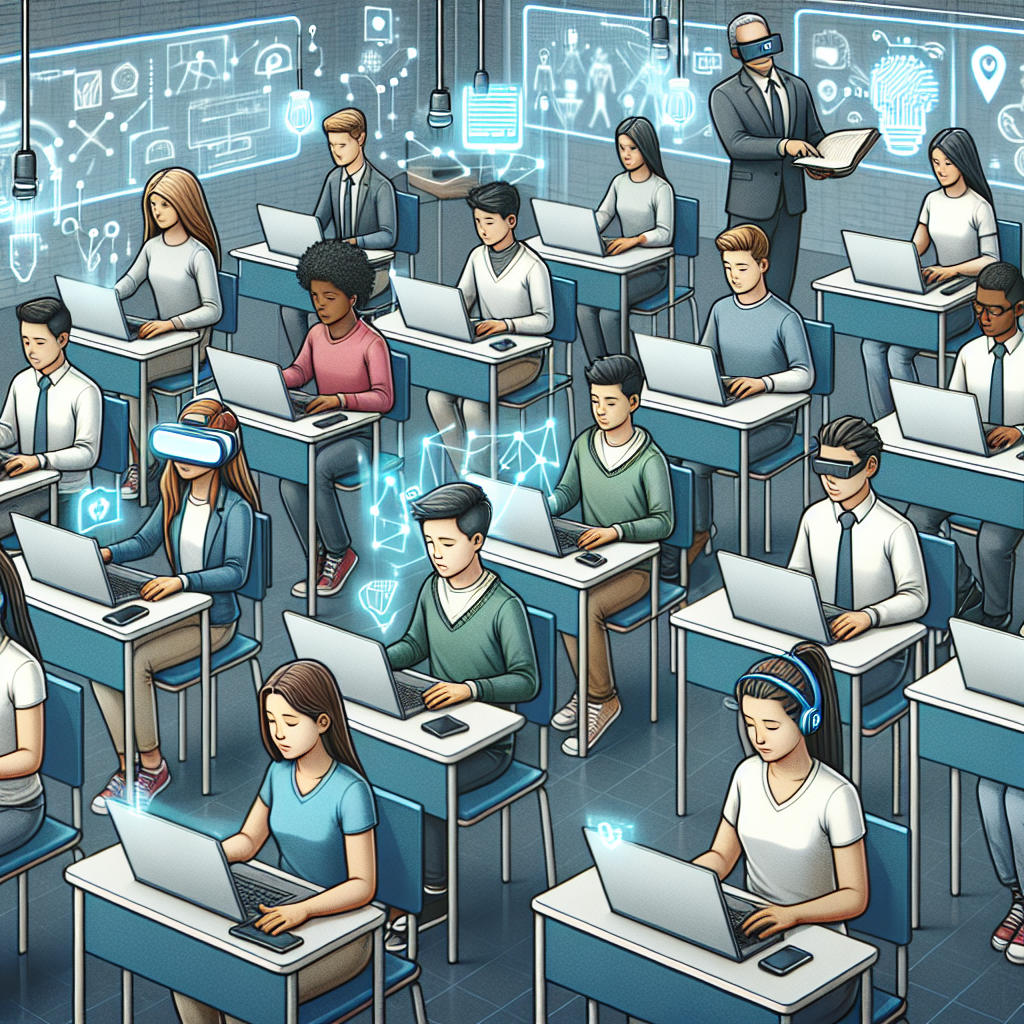In today’s digital age, technology has transformed the way we learn and educate ourselves. With the rise of artificial intelligence (AI), personalized learning paths have become more accessible and effective for students of all ages. AI has the ability to analyze and understand individual learning styles, preferences, and needs, allowing for tailored and personalized educational experiences that cater to each student’s unique strengths and weaknesses. This innovative approach to education is revolutionizing the way we teach and learn, making education more engaging, efficient, and effective.
One of the key benefits of using AI to personalize learning paths is the ability to cater to individual learning styles. Every student learns differently, and traditional one-size-fits-all teaching methods may not be the most effective way to reach every student. By using AI algorithms to analyze student data, educators can gain insight into how each student learns best, whether it be through visual, auditory, or kinesthetic methods. This allows teachers to tailor lessons and assignments to match each student’s preferred learning style, leading to improved comprehension and retention of information.
Another advantage of personalized learning paths is the ability to address individual strengths and weaknesses. AI can track a student’s progress and performance on assignments, quizzes, and tests, identifying areas where the student excels and areas where they may need additional support. This data can be used to create personalized learning paths that focus on strengthening weak areas while allowing the student to progress at their own pace in areas where they excel. This individualized approach to learning helps students build confidence and motivation, leading to greater success in their academic endeavors.
Furthermore, personalized learning paths can help students stay engaged and motivated. Traditional classroom settings can be overwhelming for students who struggle to keep up with the pace of the curriculum or who feel disengaged from the material. By tailoring lessons and assignments to each student’s interests and abilities, AI can help keep students engaged and motivated to learn. This personalized approach to education can also help students develop a love for learning and a desire to continue their education beyond the classroom.
In addition to benefiting students, personalized learning paths can also help educators by providing valuable insights into student progress and performance. AI algorithms can analyze student data in real-time, providing teachers with actionable feedback on how each student is performing and where they may need additional support. This data-driven approach to education allows teachers to make informed decisions about how to best support their students and adjust lesson plans accordingly. By leveraging AI to personalize learning paths, educators can better meet the needs of their students and help them achieve academic success.
Despite the many benefits of using AI to personalize learning paths, there are some concerns and challenges that educators and students may face. One common concern is the issue of data privacy and security. Personalized learning paths rely on collecting and analyzing student data, which may raise privacy concerns for some individuals. Educators and school administrators must take steps to ensure that student data is protected and used in accordance with privacy regulations to maintain trust and confidence in the educational system.
Another challenge is the potential for bias in AI algorithms. AI systems are only as good as the data they are trained on, and if the data used to train the algorithms is biased or incomplete, it can lead to inaccurate or unfair outcomes. Educators must be aware of the limitations of AI systems and work to mitigate bias by using diverse and representative data sets to train the algorithms. Additionally, educators should continue to monitor and evaluate the performance of AI systems to ensure that they are providing accurate and equitable learning paths for all students.
Despite these challenges, the use of AI to personalize learning paths has the potential to transform education and improve student outcomes. By catering to individual learning styles, addressing strengths and weaknesses, and keeping students engaged and motivated, personalized learning paths can help students reach their full potential and succeed in their academic pursuits. Educators must embrace this innovative approach to education and work to address the challenges that may arise, in order to provide the best possible learning experience for every student.
—
FAQs:
Q: How does AI personalize learning paths for students?
A: AI analyzes student data to understand individual learning styles, preferences, and needs, allowing for tailored educational experiences that cater to each student’s strengths and weaknesses.
Q: What are the benefits of using AI to personalize learning paths?
A: Benefits include catering to individual learning styles, addressing strengths and weaknesses, keeping students engaged and motivated, and providing valuable insights for educators.
Q: What are the challenges of using AI to personalize learning paths?
A: Challenges include concerns about data privacy and security, potential bias in AI algorithms, and the need for educators to monitor and evaluate the performance of AI systems.
Q: How can educators address the challenges of using AI to personalize learning paths?
A: Educators can address challenges by ensuring data privacy and security, working to mitigate bias in AI algorithms, and monitoring and evaluating the performance of AI systems to provide accurate and equitable learning paths for all students.

